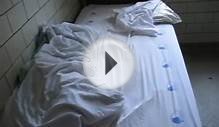
Inpatient mental Health Facilities Near me
Some of those diagnosed with alcoholism or substance abuse also suffer from a mental condition, and doctors refer to these patients as those with a dual-diagnosis1. Having a mental disorder can affect the way you receive treatment for your addiction because the doctor must treat both conditions at the same time. If you cannot find a dual-diagnosis recovery center in your area, call us at for assistance.
The Connection Between Mental Health and Addiction
Dual-diagnosis recovery centers treat those struggling with a mental disorder and a substance addiction. Addictions to prescription medications, illegal drugs, or alcohol can negatively impact people's mental health. Those suffering from schizophrenia, depression, anxiety disorders or personality disorders are about twice as likely to use and abuse drugs and alcohol and vice versa 4. The U.S. National Library of Medicine found that some users might start abusing drugs or alcohol because the substance reduces their symptoms, while others suffer from mental problems due to their substance use.
Types of Treatment
When you begin searching for dual-diagnosis rehab facilities, you'll find that doctors recommend a variety of treatment. The doctor will look at the circumstances surrounding the addiction to determine what needs treated first. Your doctor might suggest treating your mental disorder first, while another patient might receive treatment for the disorder second. The type of treatment often depends on whether you suffered from the mental condition or addiction first, but either way, a comprehensive treatment plan must be put in place in order to fully address the patient's needs and reduce the risk of relapse.
Treating the Problem
Nearly 9 million adults suffer from both a substance addiction and a mental health condition.
Nearly 9 million adults suffer from both a substance addiction and a mental health condition, such as a mood disorder, personality disorder, or schizophrenia 3. Furthermore, just over 7% of patient receive the proper treatment for both conditions, while nearly 56% of people are left untreated entirely 3. Some negative consequences that can occur when a patient with a dual diagnosis goes untreated are as follows5:- Suicide.
- Aggression.
- Increased sexual behaviors.
- Physical health problems.
- Low quality of self-care.
In order for dual diagnosis treatment to be most effective, mental health professionals must screen and assess patients in order to create comprehensive treatment plans designed to treat individualized needs 5.
Medication for a Dual-Diagnosis
Medication is a potential treatment for a dual-diagnosis, with some medications being approved as ongoing treatment for alcohol and opioid addiction. Other medications used to treat mental health conditions include antidepressants, anxiolytics, and antipsychotics. When you check into a dual-diagnosis recovery center, the doctor will often use medication along with another type of treatment such as therapy. It's important that you find a facility that not only uses medication to treat the mental disorder but also therapy or another form of treatment for the substance abuse.
Therapy and Behavior Management
Behavioral therapies should be used in combination with pharmacotherapy when treating a patient with a dual diagnosis. Cognitive-behavioral therapy teaches you how to adjust your thoughts and behaviors in regards to your condition, while group therapy imparts on how to interact with those around you. Some group therapy sessions also let you share your experiences and talk to others with the same diagnosis. Behavior management is an additional form of therapy that focuses on your behaviors and actions in regards to your substance abuse.
Finding Other Services
Depending on your type of addiction, you might find it helpful to opt for other services including:
Crisis help and interventions are significant when you need to assist someone in your life with a dual-diagnosis. An intervention gives you the chance to sit the person down and discuss the combination of mental disorder and substance abuse, and you can encourage that person to seek treatment by having a doctor on hand. Crisis help can take the form of a dual-diagnosis hotline or helpline that you call when you aren't sure what to do next. Our hotline at lets you talk to a trained counselor, determine the next step and find a dual-diagnosis treatment facility that can treat your loved one.
Taking the Next Step
According to the U.S. Department of Health and Human Services, the best dual-diagnosis recovery facilities are those that offer an integrated approach to treatment. The program shouldn't use a one-size-fits-all approach where all patients receive the same program. A good dual-diagnosis rehab program will look at each individual patient and decide the type of treatment that each patient needs. The doctor might take into account the type of mental condition that the patient suffers from, the length of the addiction and the type of substance that the person abuses. You need someone willing to listen to your situation and offer help without judging you. That's exactly what you get when you contact us. Call to help someone you love or yourself after receiving a dual-diagnosis treatment.
RELATED VIDEO



Share this Post
Related posts
Mental Health Inpatient treatment Centers
The Brattleboro Retreat s Adult Inpatient Treatment Program provides people ages 18 and older with a broad range of short-term…
Read MoreMaryland mental Health Facilities
Adult Residential Treatment Centers Adult residential treatment centers in Maryland (MD) offer residential care for adults…
Read More










